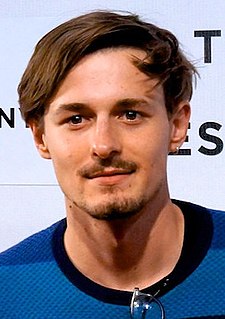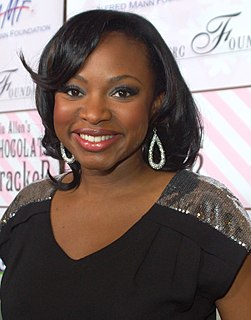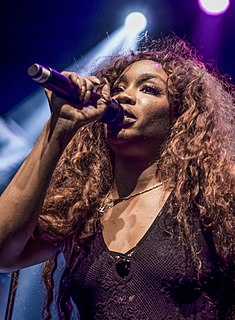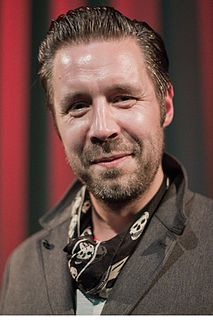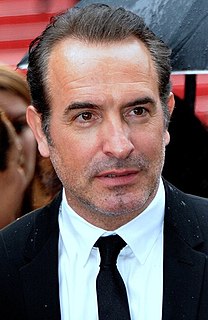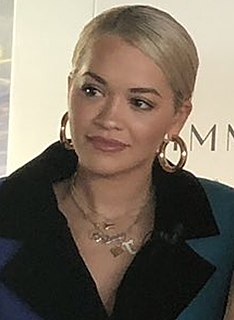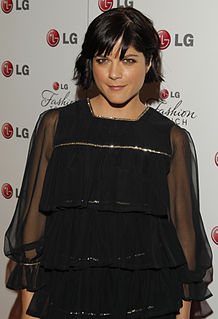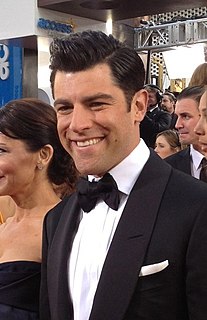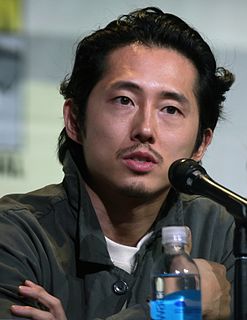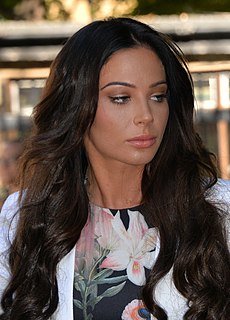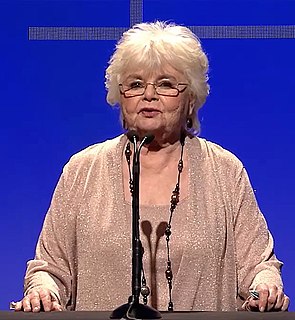A Quote by Giles Matthey
I just saw dialogue, in the audition, and had no backstory. I was like, "I'm just going to be myself because I have no idea who this is or where he's coming from." The typical questions that actors have to ask themselves were very hard. I had to imagine, a little bit, and just made it work.
Related Quotes
There've been times where, like when I auditioned for 'Akeelah,' I think in the first audition I was a little bit afraid because it was, you know, I had seen girls in there that I had seen on TV before, and I was like, 'Man, I might as well just walk out of here now because I'm just a newcomer,' and this and that.
I suppose I just had this Christian idea about how I ought to go about my life. I thought, 'If I work really hard and have a bit of success, the problems I'd had all my life would leave me.' But, of course, not a bit of it left me because Asperger's is not something you just get over or grow out of.
For me, I felt bad for people asking the questions, cause you know their boss sent them out saying, 'Get me something on Mission Impossible.' And you ask the question, and it's just a polite, 'I'm not going to tell you.' Then, every so often, they'd go, 'Well, can't you just tell us a little bit?' I have to say, 'You know what guys, I'm under contract and I'm not going to tell you anything.' So you keep asking the questions and I'm just going to keep smiling. And it's hard, cause I don't want to seem rude, but it's part of my job just like it's part of their job to keep a secret.
When I was younger, I did my first audition at 'Eurovision.' I was about 17. After my first audition, I blacked out; I was just like, 'I can't do this.' I'm not knocking it or anything - it's been around for years. I'm just very, very happy I made that decision myself. I think that's one of the best decisions I've ever made.
With directors, some have a kind of in-built ability to just know how to work with actors and get the best out of actors, and some don't have a clue about acting. I think it'd be a good idea if directors put themselves in front of the camera, or even went on a six-week drama course, just to know a little bit about what that feels like.
Dark Horse movie might be blood, sweat, and tears for Todd Solondz, because things are so important to him and so specific. He has such a rhythm and a tone. So while he may have to work so hard to keep that intact, it allows the actors the freedom to just breathe. Because he's done all the heavy lifting. He really has. He has everything the way he needs it. And so we can just get there and be whatever he saw in the audition.
I just felt like actors - I watched a lot of 'SNL,' and those guys just seemed like they were superheroes - that that wasn't a reality for anyone other than people with superhuman strength. So, I mean, I acted a little bit in high school, but the idea of doing it professionally was just never really an option.
Having read the source material, I had to have drawn from that. As a fan, I wanted to remain true to that character, but it was really cool because, as we were figuring these characters out, I realized that there was a lot more backstory, rather than what I had gotten just from reading the book. Glenn doesn't really get much of a backstory there. He's just seen as this kid who is put in this situation, not knowing where his mind-set is, but then you slowly see him start to develop.
I didn't like what was on TV in terms of sitcoms?it had nothing to do with the color of them?I just didn't like any of them. I saw little kids, let's say 6 or 7 years old, white kids, black kids. And the way they were addressing the father or the mother, the writers had turned things around, so the little children were smarter than the parent or the caregiver. They were just not funny to me. I felt that it was manipulative and the audience was looking at something that had no responsibility to the family.
Creativity is just connecting things. When you ask creative people how they did something, they feel a little guilty because they didn't really do it, they just saw something. It seemed obvious to them after a while. That's because they were able to connect experiences they've had and synthesize new things.
My son was staying with me, and we got up to watch it, just before they announced supporting actress, he came up and put his arm around me. I think it was like, 'Either way, mom, I still love you.' But then it was funny because I saw it. I saw my picture, and I heard them announce it, but I had to ask him, 'Did I really see that?' I wasn't sure I was seeing it, but he assured me that yes, I was nominated for the Academy Award. We just sort of cried a little bit.
